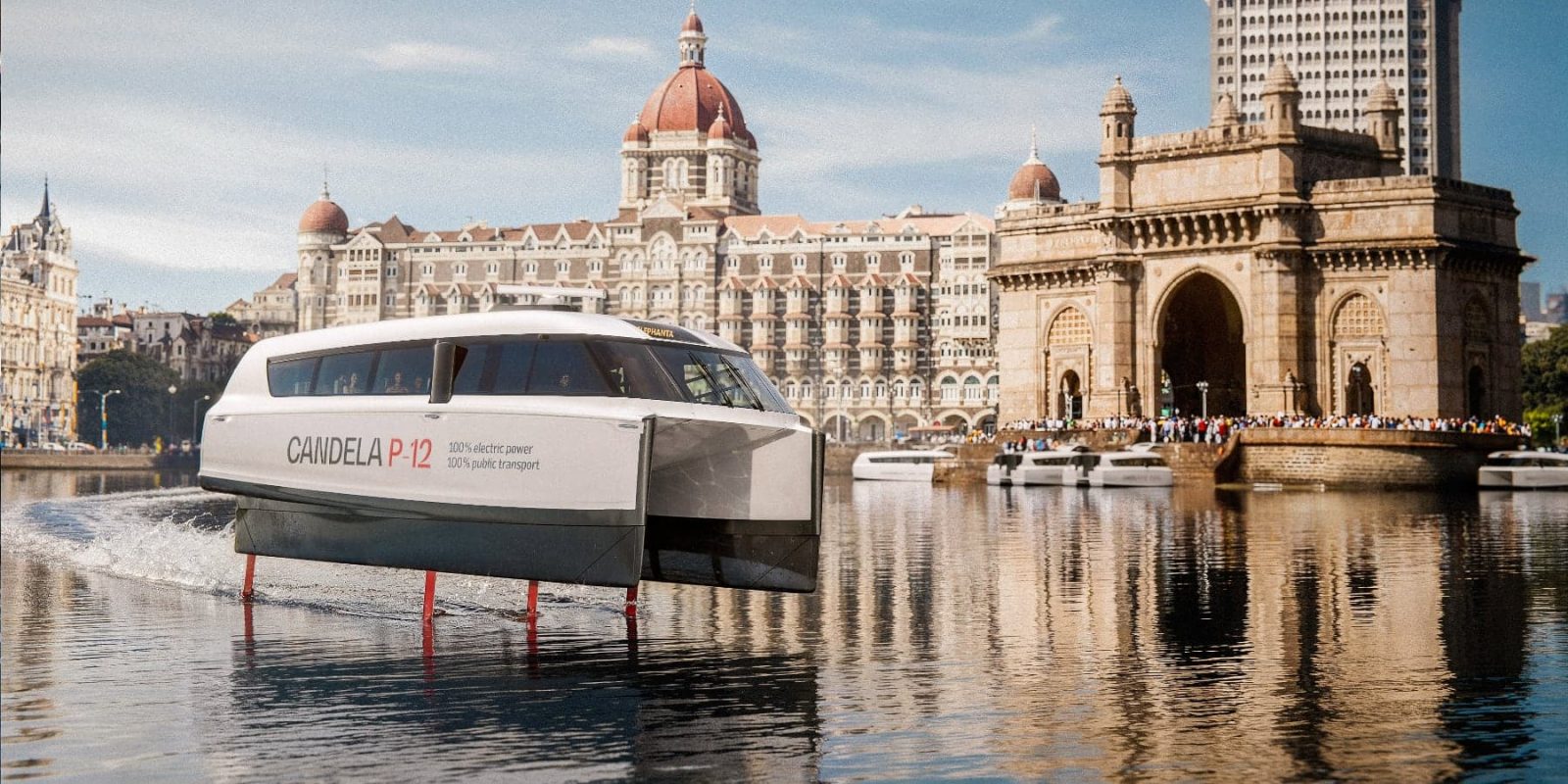
Politicians in Maharashtra hope to build the world’s largest electric mass transit system on the coastal metropolis’ waterways. It’s all starting now with a recent order of 11 of Swedish boat maker Candela’s P-12 electric ferries, often referred to as ‘flying boats’ due to the way their hydrofoils lift the hulls out of the water for faster speeds and better efficiencies.
In what’s now the largest electric ferry fleet deal in the world, Mumbai-based waterborne transport startup JalVimana has announced the purchase of 11 Candela P-12 vessels, with plans to expand far beyond that. The futuristic hydrofoil ferries will soon serve some of the city’s busiest corridors, slashing travel times and emissions in one clean shot.
The Candela P-12 isn’t your average ferry. It’s not even a typical electric ferry. This sleek, all-electric vessel uses computer-controlled hydrofoils to lift its hull out of the water at speed, reducing drag and delivering a smoother, quieter ride, even in choppy conditions. In fact, it’s so smooth that the boats have been shown to offer nausea-free water transit for those prone to sea sickness. Fast charging abilities mean that the ultra-efficient ferry’s smaller battery can be quickly recharged during short breaks or even between stops.
And it’s not just cleaner and more efficient than gas-powered ferries – it’s also faster. In Mumbai, the P-12 is expected to cut travel time between the Gateway of India and Alibaug from 2–3 hours by car down to a breezy 25 minutes by sea. Another planned route connecting the airport to central Mumbai could drop from 90 minutes to under 30. And with Candela already approved for a pair of water routes in Mumbai, there could be things yet to come.
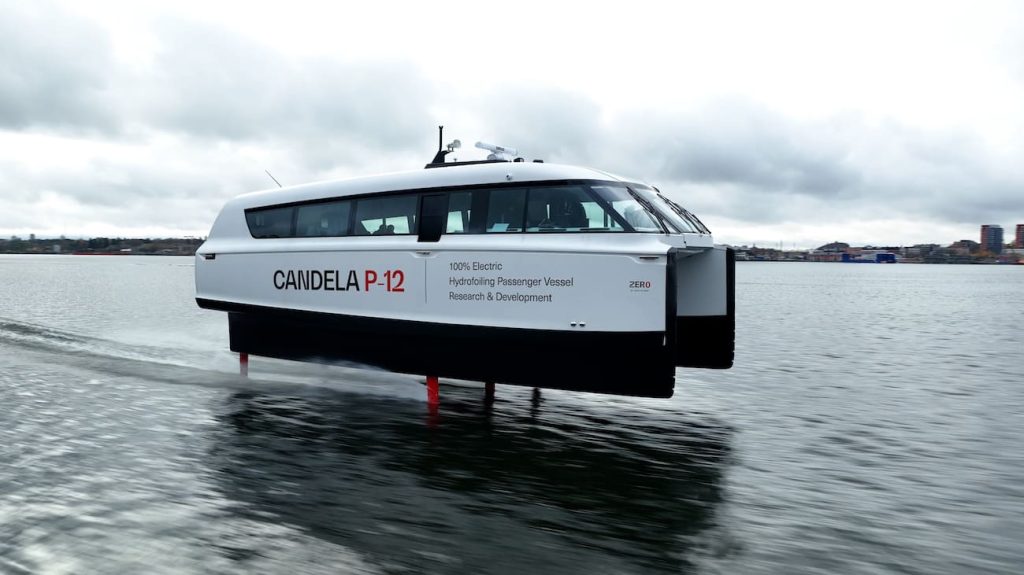
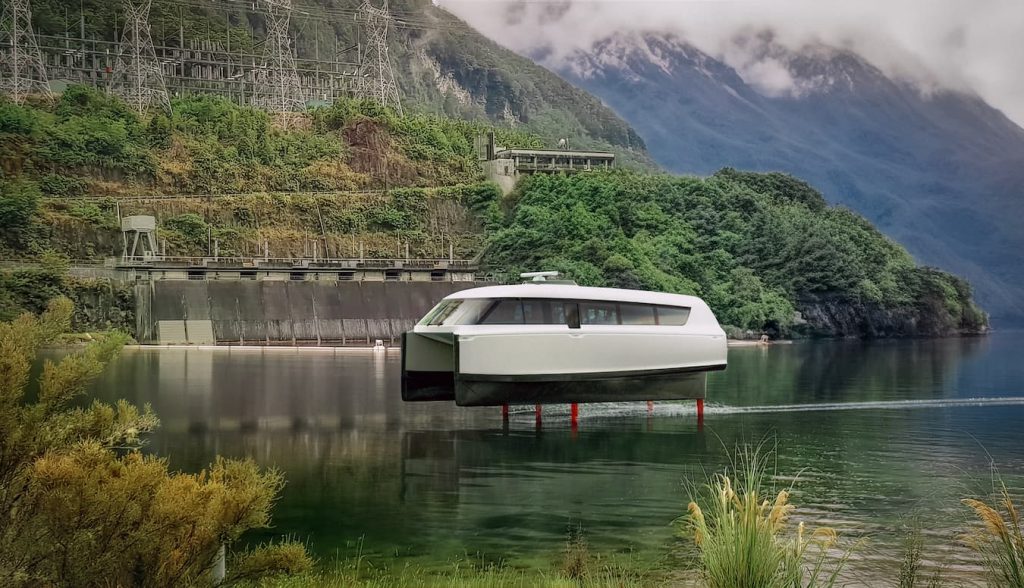
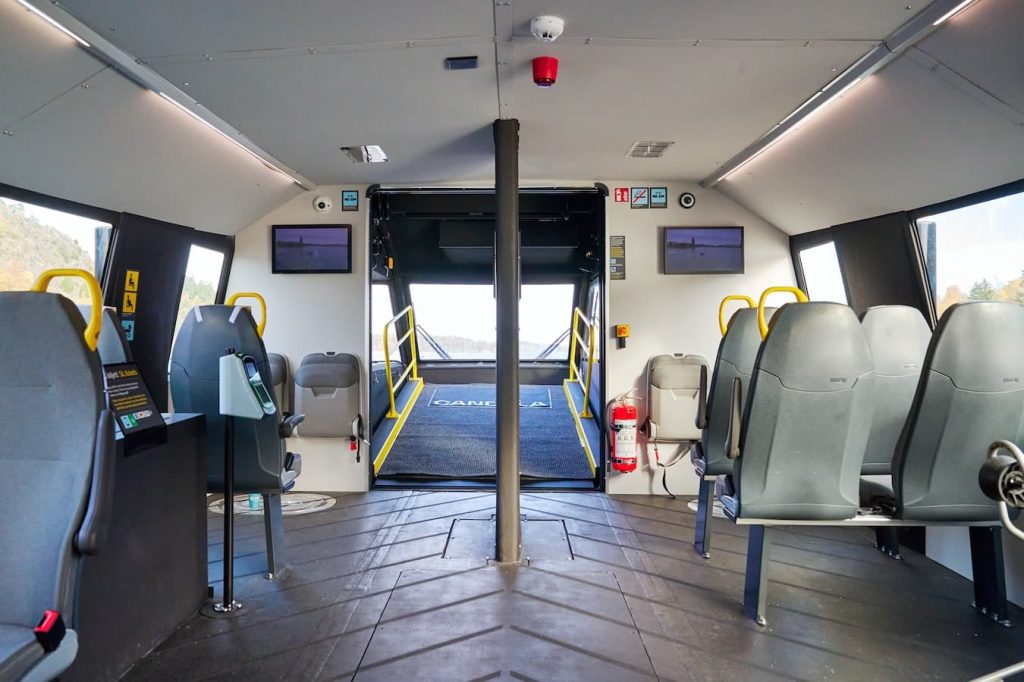
“This is a huge leap forward for Mumbai,” said JalVimana CEO Niraj Thakur, who praised the P-12 as “a remarkable Swedish innovation” that aligns with India’s broader goal of sustainable, coastal-friendly transportation. The Maharashtra government, led by Ports Minister Nitesh Rane and Chief Minister Devendra Fadnavis, has committed to deploying thousands of electric vessels as part of a bold reimagining of the city’s mobility network.
Candela CEO Gustav Hasselskog called the deal “an honor” and emphasized the global significance of the move. “With the P-12, we can show that electric ferries are not only better for the environment — they can add a vital new layer of mobility to Mumbai.”
Hydrofoil electric ferries could be a game-changer for Mumbai’s congested transportation network, offering a clean, quiet, and efficient alternative to the city’s traffic-clogged roads and overburdened rail system. With their ability to glide above the water on submerged wings to reduce energy use and offer faster, smoother rides, they could be perfect for commuting across Mumbai’s expansive coastline and waterways. Electric propulsion adds the benefit of zero local emissions, helping to combat the city’s notorious air pollution while slashing operating costs. For a city surrounded by water and struggling with urban mobility, hydrofoil e-ferries present a fast, scalable, and sustainable solution.
After debuting in Stockholm in 2024, where the P-12 electric ferry proved it could replace diesel ferries with faster, zero-emission alternatives, Candela is now positioning its technology as the blueprint for waterborne transit around the world. With this deal, Mumbai could become a global model for how to use smart, clean marine transport to solve big-city gridlock.
If it works, the future of commuting in megacities might not be underground or above ground – but just above the water.
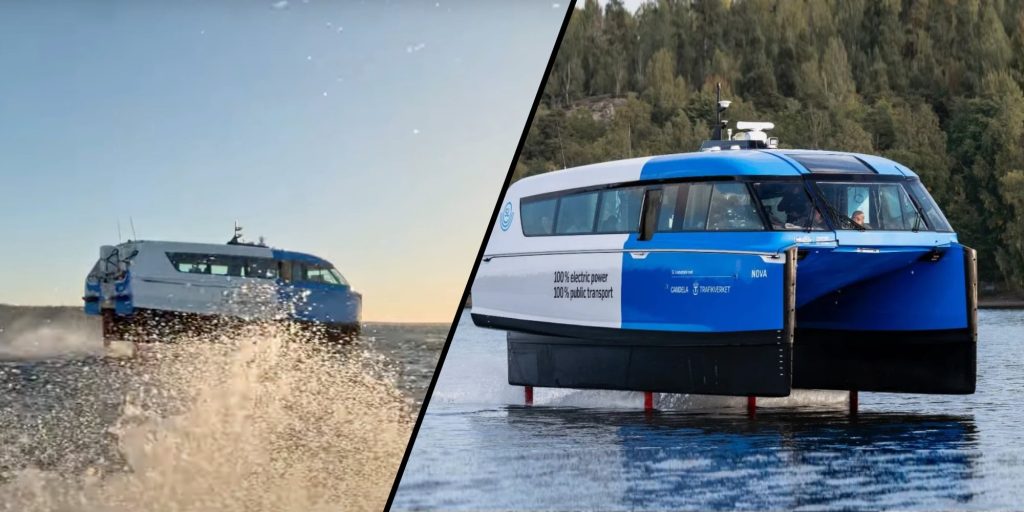
FTC: We use income earning auto affiliate links. More.




![Not enough: Corvette concept falls 1,000 hp short of Chinese hypercar hype [video]](https://i0.wp.com/electrek.co/wp-content/uploads/sites/3/2025/08/not-enough.jpg?resize=1200,628&quality=82&strip=all&ssl=1)







